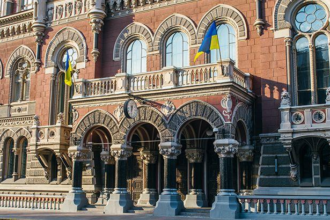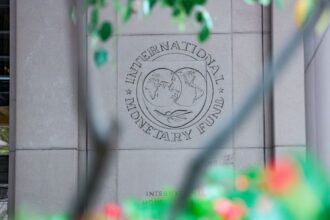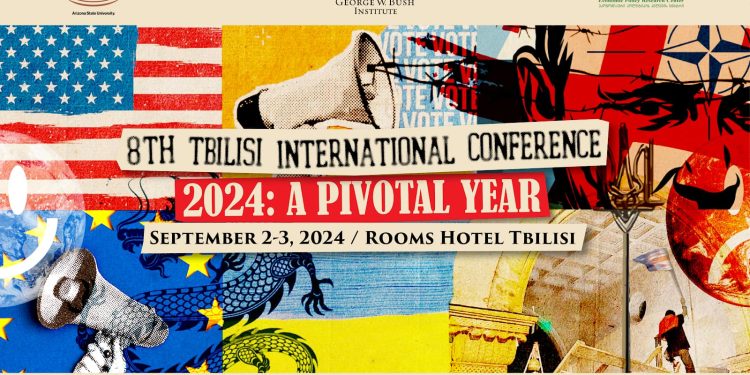The Economic Policy Research Center, together with the McCain Institute of Arizona State University and George W. Bush Institute are leading the 8th Tbilisi International Conference, which will take place in Tbilisi on September 2-3. The conference is titled “2024 – A Pivotal Year” and features policymakers and experts both from Europe and America.
The Tbilisi International Conference is a platform for critical discussions on global security, foreign policies, and the futures of democracy in a period marked by geopolitical shifts, transformational events, and significant geopolitical changes. The conference will take place against the backdrop crucial elections in both the United States and Georgia. The conference will also examine how the free and democratic world can overcome the challenges it faces in order to defeat Putin’s regime, and other forms aggressive revisionism.
“The McCain Institute is proud to once again collaborate with EPRC and George W. Bush Institute as sponsors of the Tbilisi International Conference,” stated Dr. Evelyn Farkas. “Georgia was a place that Senator John McCain held dear to his heart. We extend our gratitude to EPRC, for bringing such a distinguished group together to tackle global issues, especially at a critical time in Georgia. The Georgian people are committed to democracy, rule of law and the transatlantic partnership, and we stand by them, just as Senator McCain did.”
“We are pleased to host the Tbilisi International Conference, for the eighth time. In the current global environment, it is vital that all democratic forces come together to combat the multifaceted global assault of authoritarian forces and revisionists. We are honored to host in Tbilisi eminent experts and policymakers around the world to reaffirm a shared commitment to democracy and freedom. We are pleased to have the chance to engage in constructive discussion and analysis of geopolitical shifts caused by the grave threats that currently face the free world, in the context of the continuing military aggression of Ukraine and increasing Russian influence in Georgia,” said EPRC executive director Nino Evgenidze.
David J. Kramer is the executive director of George W. Bush Institute. He said that the conference this year comes at a critical time for Georgia, its region and the world. “We are fortunate that a large number of participants will be joining us to discuss some of the most pressing topics. As always, we are grateful to EPRC for hosting us and organizing the conference in such a beautiful setting. “Thank you to the people in Georgia for their warm hospitality.”
Since 2015, the Tbilisi International Conference brings together international and regional experts in the fields of foreign policy, security and democracy with Georgian policymakers and civil society activists. The goal is to keep Georgia on the transatlantic agenda, and on track with its democratic progress and Transatlantic aspirations. The Conference, which is held in the heartland of the Caucasus region, has gained a reputation for being a must-attend event for leaders from Georgia, the United States and Europe.
Contact Tamar Khorbaladze or Tedo Evgenidze to learn more about the Tbilisi International Conference 2024.
Topics for Panel Discussions
* Georgia in Flux
Disarray in International Order
* Ukraine – Victory Prospects
* Holding Putin, and Russia Accountable
* Elections in Europe
* Expansion of the European Union
The Future of NATO
The China Challenge
Information/Cyber Warfare, AI and Disinformation
* Democracy vs. Authoritarianism
* Elections in the United States
Speakers and participants:
Alexander Sokolowski, U.S. Agency for International Development
* Alexandra Hall Hall Former British Ambassador to Georgia
* Anna Fotyga is a former Member of the European Parliament
* Anna Maria Corazza Bildt Member of the European Parliament 2009 – 2019
* Batu Kutelia – Atlantic Council of Georgia
* Benedetta Berti, NATO
* Bobo Lo Center for European Policy Analysis
* Bogdan Klich is a member of the Polish Parliament
* Brian Whitmore, Atlantic Council
* Charlotta Rodhe, Stockholm Centre for Eastern European Studies
* Colleen GRAFFY, Pepperdine University Caruso School of Law
* Dalibor Rohac American Enterprise Institute
* Dan Baer Carnegie Endowment for International Peace
* Dan Fried, Atlantic Council
* Daria Kaleniuk ANTAC
* David Smith, The Guardian
* Diana Janse – Ministry of Foreign Affairs of Sweden
* Eka Giauri, Transparency International Georgia
* Emanuelis Zingeris is a member of the Lithuanian Parliament
* Fredrik Ljdquist – Stockholm Centre for Eastern European Studies
* Gustaf Göthberg, Member in the Swedish Parliament
* Hiroyuki Akita, Nikkei-Japan
Hugues Mingarelli is a former ambassador of the European Union in Ukraine
Ia Meurmishvili: The Cipher Brief
* Ian Bond, Centre for European Reform
* Ian Kelly, Northwestern University
* Igor Khrestin, George W. Bush Institute
* Isabelle Lasserre, Le Figaro
* James Nixey of Chatham House
* Jonas Hafstrom is a former Swedish ambassador to the U.S.
* Keti Khutsishvilli, Civil Society Foundation
* Knut Abraham is a member of the German Parliament
Laura Kelly, The Hill
* Laura Thornton, McCain Institute
* Linas Links Linkevicius is Lithuania’s ambassador to Sweden
* Marketa Gregorova is a Member of the European Parliament
* Marko Mihkelson is a member of the Estonian parliament
Miranda Patrucic is the Director of the Organized Crime and Corruption Reporting Project
* Nicolas Tenzer Center for Study and Reflection for Political Action
* Oleh Shamshur is with the Atlantic Council
* Pedro D. Botta, Florida International University
* Radoslaw Fógil, Member of the Polish Parliament
* Randy Scheunemann International Republican Institute
* Rasa Jukneviciene is a member of the European Parliament
* Rihards Kolls, Member of European Parliament
* Scott Carpenter, Jigsaw
* Sevgil Musaieva, Ukrainska Pravda
* Shota Gvineria Economic Policy Research Center
* Stefan Meister German Council on Foreign Relations
* Stephen Capus, RFE/RL
* Tobias Ellwood, British Conservative Party Politician
* Tom Malinowski Former Member of U.S. Congress
* Vlad Galushko Open Society Foundations
* William Taylor, United States Institute of Peace
The Economic Policy Research Center (EPRC).
Since its founding 20 years ago, EPRC is relentlessly pursuing the mission to strengthen democracy, promote safety and foster economic growth in Georgia through research and analysis of policy, advocacy, awareness raising and capacity building. The EPRC mission reflects the agreement among Georgia’s Western Partners that a tangible, measurable progress toward robust liberal democracy is necessary for sustainable inclusive growth and development in order to achieve prosperity for the country. Georgia’s position as a democratic frontline country in need of additional reinforcements to ensure a prosperous and free future with Europe, and against regressing into the autocratic past, is also reflected in its mission. EPRC, by working closely with stakeholders and building coalitions between civil society, private sector and international partners and collaborating with them, has become a prominent advocate for the European future of Georgia. The Center’s reputation is based on its political neutrality and independence, as well as its technical ability to generate applied knowledge to address economic and social challenges. The organization’s value is enhanced by its proven ability to deliver high-quality research & analyses, capacity building initiatives and high-profile events. It also attracts global academic and political leaders and builds a domestic network of changemakers. For more information, please visit www.eprc.ge
The McCain Institute at Arizona State University
The McCain Institute was founded by Senator John McCain’s family to honor their commitment to public service. Our programs, which are based at Arizona State University in Washington, D.C., defend democracy, advance freedom and human rights, and empower leaders with character. We are able to have a real impact in the world because of our unique ability to bring together leaders from across the political spectrum. Our goal is to act, not just talk. And like Senator McCain, our fight is for a safe, free, and just world.
The George W. Bush Institute
The George W. Bush Institute, a nonpartisan, solution-oriented policy organization, is focused on ensuring equal opportunity for everyone, strengthening democracy and advancing free societies. The Bush Institute, located in the George W. Bush Presidential Center is rooted conservative values, and committed to creating positive and meaningful change at home and abroad. We use our unique platform and convening powers to advance solutions for national and global issues. Visit bushcenter.org to learn more.
Read More @ georgiatoday.ge




